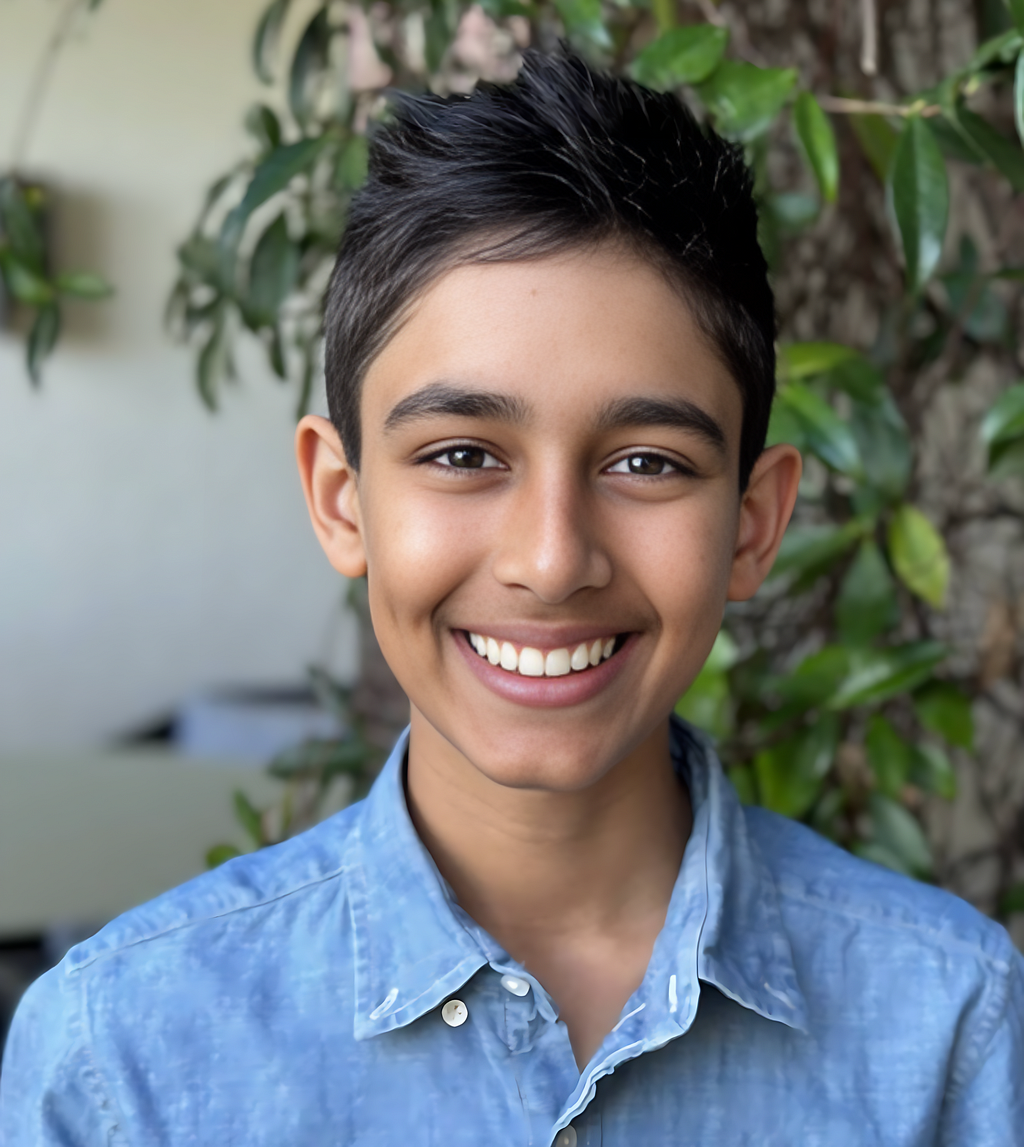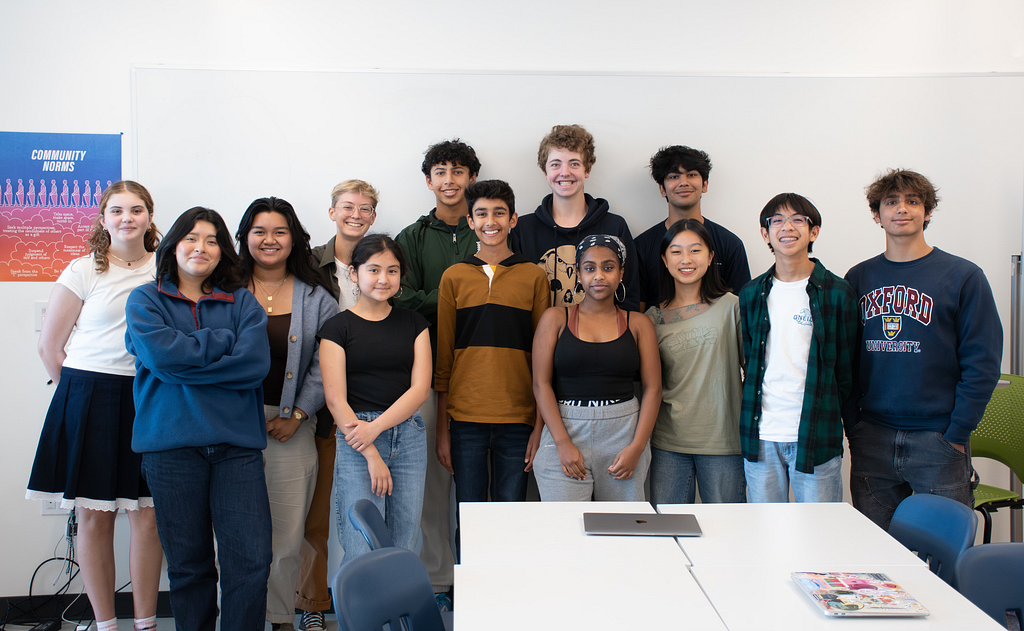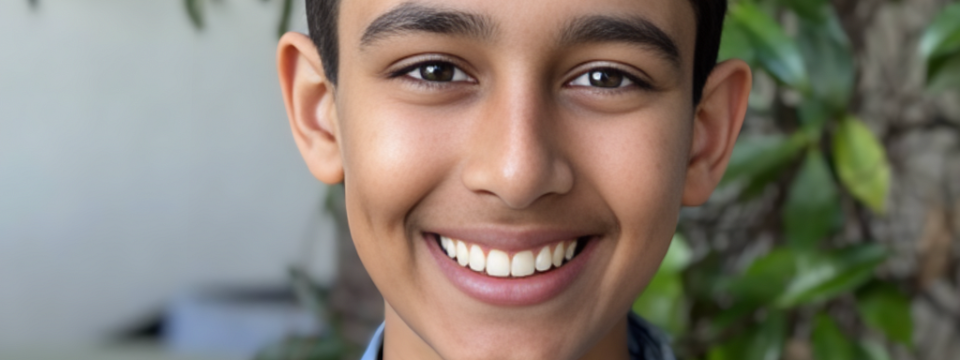
Remain open to change. I appreciate when my team challenges our assumptions on the best way to do this work. We try not to get too attached to our original ideas and approaches.
As part of my series about young people who are making an important social impact”, I had the pleasure of interviewing Saahil Mishra, founder of Unwiring.
As millions of people around the world log on daily to vast networks of content and communities, social media continues to play a major role in our interpersonal and societal disconnection. I found myself connecting, without ever feeling connected when using every social media app available. In 2022, I founded Unwiring, an organization dedicated to catalyzing change within social media. By educating today’s young people about strategies for healthier use, this movement led by youth, for youth — empowers a new generation to have a voice in the future of social media. In conjunction with my work at Unwiring, I serve as a research assistant at the Stanford Social Media Lab, analyzing perceptions around technology as well as trends in disinformation. I’ve also worked as a writer and reporter for the Poynter Institute’s MediaWise, a non-profit news organization teaching youth media literacy online.
Thank you so much for doing this with us! Before we dig in, our readers would like to get to know you a bit. Can you tell us a bit about how you grew up?
I have the privilege of growing up within a close-knit community of individuals I love and admire. My friends, family, coaches, and mentors have instilled within me the value of unity and interconnectedness. When I was nine years old, I had the opportunity to live and learn abroad. My “road-schooling” emphasized a more holistic understanding of the world, fostering my curiosity and strengthening my commitment to deeply investing in connections. This journey led me to Lick-Wilmerding High School, a unique institution centered on the principles of social justice and public purpose.
You are currently leading an organization that aims to make a social impact. Can you tell us a bit about what you and your organization are trying to change in our world today?
I am deeply concerned about how social media affects our generation: increasing social isolation, worsening mental health, spreading disinformation, and fueling political polarization. This concern extends across both our individual well-being to the broader health of our society. To address this emerging crisis, I founded Unwiring, an organization aiming to educate and empower young people. By creating online educational videos and curriculum, as well as, by hosting initiatives like our ReDesign Challenge and Youth Summit, we strive to illuminate the negative impacts of social media, provide strategies for healthier use, and encourage teens to participate in reshaping the future of social media.
Can you tell us the backstory about what inspired you to originally feel passionate about this cause?
I have always appreciated the deep relationships in my life. When I started seeing social media alter the way in which friends around me were interacting with one another, I was really concerned. This trend became especially challenging during the pandemic. I didn’t want to live in a society where a core part of our humanity — genuine interpersonal connection — was reduced to posts, comments, and likes.
Many of us have ideas, dreams, and passions, but never manifest them. They don’t get up and just do it. But you did. Was there an “Aha Moment” that made you decide that you were going to step up, and do it? What was that final trigger?
Throughout the pandemic, I would text a close friend almost every day. We would Snap back and forth, send TikToks, and make plans to eventually get together in person. When we finally did meet up six months later, my friend shared for the first time the traumatic life events he had been experiencing. Behind the shallow filter of social media, he had been facing anxiety, depression, and ultimately self-harm. Despite “connecting” with him over social media, I hadn’t “connected” with him until that day. Only by being together, in-person, could I truly support him as a real friend– there started the journey of Unwiring.
Many young people don’t know the steps to take to start a new organization. But you did. What are some of the things or steps you took to get your project started?
The summer after my frosh year in high school, I requested to take a semester-long independent study focused on social media’s inner-workings and impacts. Over the course of that summer, I designed a curriculum for myself — readings, projects, and lots of questions — to better understand the technology and how it was impacting society. Only after several months of deep, focused learning did I begin thinking about what role I wanted to play in making a difference.
I spent time brainstorming, talking to mentors, and learning from other young activists. That provided the basis to develop Unwiring’s vision and mission statements: why we existed and what we hoped to accomplish. As part of this process, I also wanted to be clear about what we were not going to do.
Once I had a firm direction, I started to spread awareness through my first TEDx Talk, and build a team of like-minded, passionate teammates and advisors.
Can you share the most interesting story that happened to you since you began leading your company or organization?
I was shocked to see how many other young people were interested in working with Unwiring. Prior to publicly sharing Unwiring’s vision and mission, I had assumed that very few young people around me were concerned about social media. If anything, based on the amount of time our generation spends online, I had guessed that they loved the platforms and would have dismissed the importance of the issue. I was thrilled to see how many teens felt passionate about social media reform, and today we have grown to about 20 folks working together on our various initiatives.
It has been said that our mistakes can be our greatest teachers. Can you share a story about the funniest mistake you made when you were first starting? Can you tell us what lesson you learned from that?
Don’t let perfect be the enemy of the good. Did I spend way too many weeks designing the Unwiring logo? Yes. Would I do it again? Probably! The process of iteration after iteration on our logo helped me better understand myself, and my willingness to put in 150% if I enjoyed the journey. The challenge, of course, is that any time spent in one place means that it’s not being spent on other important, and often less fun, workstreams. The learning for me has been to find ways to make work that may not seem especially exciting on its surface, fun and meaningful for everyone involved.
None of us can be successful without some help along the way. Did you have mentors or cheerleaders who helped you to succeed? Can you tell us a story about their influence?
I’ve been fortunate to have two incredible mentors throughout the growth of Unwiring. Ms. Isabella Henderson, my independent study advisor, helped breathe life into my social media reform. Every week — after reading articles on topics like the algorithm or social isolation — we would meet to discuss the subject-matter in depth. I cherish our conversations: engaging dialogue, messy brainstorms on a whiteboard, 100-page documents of notes and ideas, and the joy of learning how to drive change.
Dean Dee Johnson, an educator focused on adult equity and inclusion, is one of Unwiring’s amazing advisors. With an extensive background in DEI work, she is a uniquely thoughtful mentor teaching me how to build a movement and drive change on a national scale. Through our hours and hours of conversation, Dean Dee has guided me in becoming both a better leader and thought leader.
Above all, I walk away from every conversation with both Ms. Henderson and Dean Dee feeling deeply inspired.
Can you tell us a story about a particular individual who was impacted or helped by your cause?
Across our work at Unwiring, research for Stanford’s Social Media Lab, and reporting for the Poynter Institute’s Media Wise, we know we are reaching thousands of young people. However, we don’t always know exactly how the videos and writings are changing people’s lives.
On one occasion, it was heartwarming to hear that our message had impacted a young girl’s view of the world. Specifically, her mother shared with me that she and her eight-year-old daughter had watched one of our videos about the difference between “connecting” with someone over social media and “feeling connected” with someone in a deeper way. Weeks later, the young girl used that framework when talking about two very different interactions she had with friends at school! A small moment, but meaningful for me to see the power of lenses on the world, especially when you develop them at an early age. Through a lot more little moments in the future, we hope to catalyze a bigger movement.
Are there three things the community/society/politicians can do to help you address the root of the problem you are trying to solve?
- Learn more about the negative implications of social media and make small adjustments to improve your use. Try to understand your relationship with social media and spend more time offline with the people you love.
- Hold social media companies accountable. According to the U.S. Surgeon General, technology companies can better and more transparently assess the impact of their products on children, share data with researchers to increase our collective understanding of the impacts, and make design decisions that prioritize the well-being of young people.
- Policymakers can take steps to strengthen safety standards and create rules for engaging on social media in healthier ways. Policy can also support our media literacy and fund additional research.

What are your “5 things I wish someone told me when I first started” and why?
- It takes a village. The work of catalyzing a social movement is complex. Building a passionate team and set of mentors early is crucial to accomplishing bold goals.
- Be (urgently) patient. I want to move urgently to reach young people with the tools they need for safe use of tech. At the same time, I am constantly reminded that the journey is not easy and will take time. Buckling in for the long haul is key.
- Seek out stories. Some of our best learnings and insights have come from young people sharing their stories. They are a special way to touch the heart and the mind.
- Focus your efforts. Sometimes my eyes are bigger than my stomach! Balancing breadth and depth are a constant challenge, but I am working on leaning towards doing a few things well vs. attempting too much.
- Remain open to change. I appreciate when my team challenges our assumptions on the best way to do this work. We try not to get too attached to our original ideas and approaches.
If you could tell other young people one thing about why they should consider making a positive impact on our environment or society, like you, what would you tell them?
Never underestimate our potential to shape the future. This is especially true when considering issues related to technology and our health. We have grown up as “digitally native” and thereby have a unique ability to engage with issues related to tech, despite our age. Moreover, when we are directly impacted by an issue, sharing our perspectives and stories becomes that much more important to inform change that reflects our needs.
Is there a person in the world, or in the US with whom you would like to have a private breakfast or lunch, and why? He or she might just see this, especially if we tag them. 🙂
I admire our U.S. Surgeon General Dr. Vivek Murthy. He recently issued a call for urgent action by policymakers, technology companies, researchers, families, and young people alike to gain a better understanding of the full impact of social media use. I would love to partner with Dr. Murthy to couple his policy-level work with our Unwiring work on the ground.
How can our readers follow you online?
This was very meaningful, thank you so much. We wish you only continued success in your great work!
Young Social Impact Heroes: Why and How Saahil Mishra of Unwiring Is Helping to Change Our World was originally published in Authority Magazine on Medium, where people are continuing the conversation by highlighting and responding to this story.
